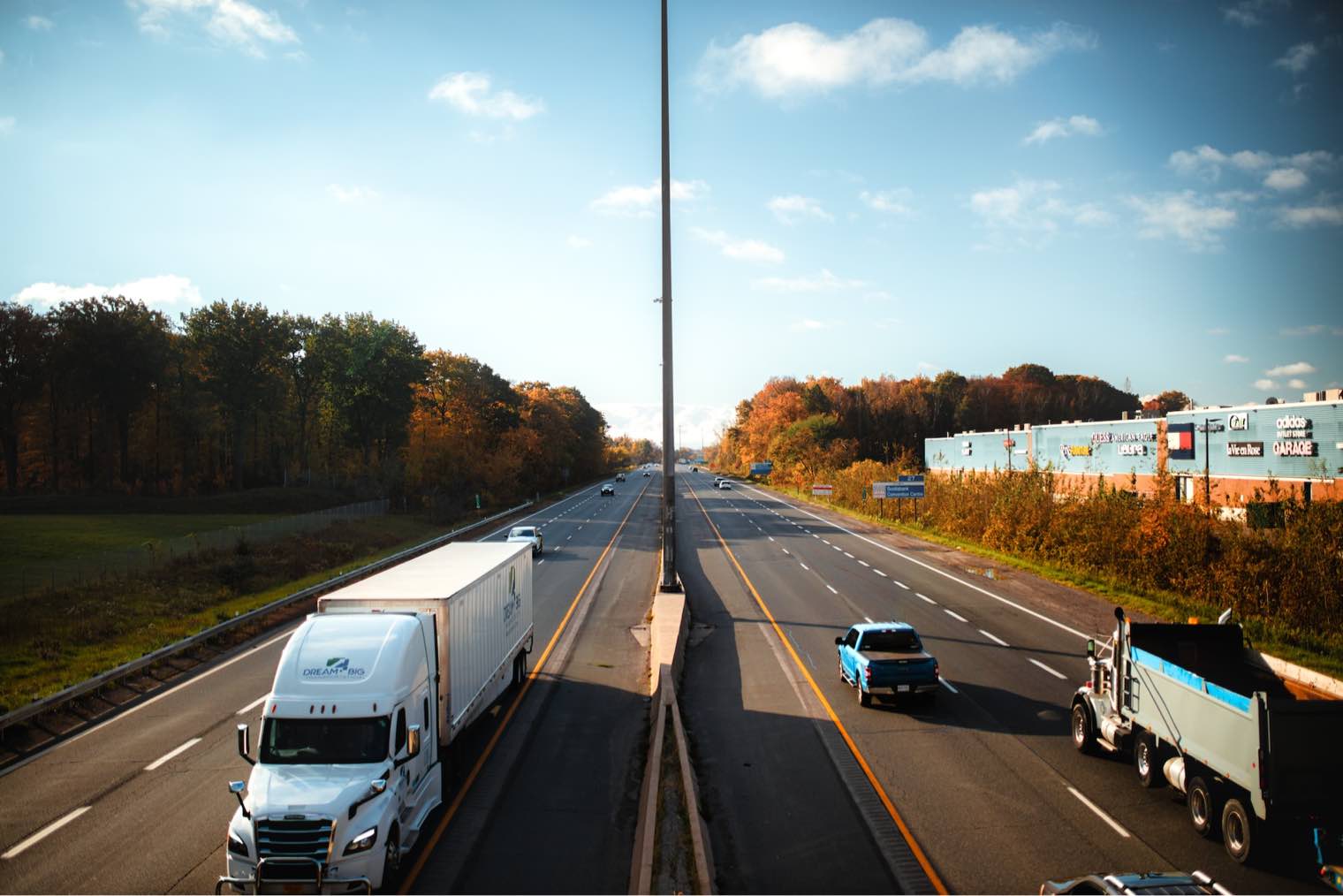Moving cross-country can be an exciting yet daunting endeavor. The logistics of transporting your belongings, including your car, can add an extra layer of complexity to the process.
However, by considering car shipping as an alternative to driving, you can enjoy a stress-free move and reap numerous benefits along the way.
Cross-country car transport refers to the process of shipping a vehicle from one location to another, typically over long distances. It involves entrusting your vehicle to a professional car shipping company that specializes in transporting vehicles across different states or even across the entire country. This service allows individuals and families to relocate their vehicles without the need for a long and arduous drive.
By opting for car shipping, you can save yourself from the stress of extended hours on the road, navigating unfamiliar routes, and enduring fatigue. It allows you to focus on other aspects of your move, ensuring a smoother transition to your new home.
The duration of shipping a car across the country can vary depending on factors such as the distance, specific route, weather conditions, and the schedule of the car shipping company. On average, it can take anywhere from a few days to a couple of weeks for the vehicle to be transported and delivered to its destination.

Shipping your car comes with a range of advantages that can enhance your moving experience.
Firstly, it saves you time and energy, enabling you to dedicate your attention to important matters like settling into your new home, coordinating logistics, and spending quality time with your loved ones.
Secondly, car shipping eliminates the wear and tear that long-distance driving can impose on your vehicle, ultimately prolonging its lifespan.
Additionally, by entrusting professionals to handle the transportation, you can have peace of mind knowing that your car is in safe hands and protected from potential accidents or road hazards.
By exploring the various aspects of this process, you will gain the knowledge and confidence needed to make informed decisions, ensuring a smooth and efficient relocation.
Understanding Car Shipping Services
When it comes to shipping your car cross-country, understanding the different car shipping options and services available is essential. By familiarizing yourself with these options, you can make an informed decision that suits your needs and ensures the safe transportation of your vehicle. Let’s explore the various aspects of car shipping services:
1. Types of car shipping options
- Open transport: Open transport is the most common and cost-effective method of shipping a car. Your vehicle is loaded onto an open-air trailer and transported along with other vehicles. While this option provides sufficient protection from road debris and weather conditions, your car will be exposed to the elements during transit.
- Enclosed transport: Enclosed transport offers an additional layer of protection for your vehicle. Your car is loaded into a covered trailer, shielding it from potential damage caused by weather, road debris, and other external factors. This option is ideal for classic cars, luxury vehicles, or high-value automobiles that require extra care and protection.
2. Terminal-to-terminal vs. door-to-door delivery
- Terminal-to-terminal delivery: With terminal-to-terminal delivery, you drop off your vehicle at a designated terminal, and it is then transported to another terminal near your destination. This option is typically more affordable but requires you to arrange for transportation to and from the terminals.
- Door-to-door delivery: Door-to-door delivery provides convenience by having the car shipping company pick up your vehicle from your current location and deliver it directly to your new address. This option eliminates the need for additional transportation arrangements and offers a hassle-free experience, albeit at a slightly higher cost.
Is Cross-Country Car Transport Door-to-Door?
Door-to-door car transport refers to a service where the car shipping company picks up your vehicle from your specified location and delivers it directly to the destination address you provide. Whether cross-country car transport is door-to-door depends on the car shipping company and its specific services. It is important to discuss this with the company to confirm if door-to-door service is available in your case.
3. Research reputable car shipping companies
To ensure a smooth and reliable car shipping experience, it is crucial to research and select a reputable car shipping company. Consider the following factors when conducting your research:
- Company credentials and licenses: Verify that the car shipping company is licensed and registered with the appropriate authorities. This ensures compliance with industry regulations and provides peace of mind that your vehicle is in trustworthy hands.
- Insurance coverage and liability: Check the insurance coverage offered by the car shipping company. Adequate insurance protects your vehicle in the event of any unforeseen incidents during transit. Additionally, inquire about their liability policies to understand their level of responsibility and accountability.
- Customer reviews and testimonials: Read reviews and testimonials from previous customers to gauge the company’s reputation and reliability. Feedback from others who have used their services can provide valuable insights into their level of professionalism, communication, and overall customer satisfaction.
4. Obtaining multiple quotes for comparison
To get the best value for your money, it is recommended to obtain multiple quotes from different car shipping companies. This allows you to compare prices, services, and customer reviews. When requesting quotes, provide accurate information about your vehicle, desired shipping options, and delivery timeframe. Be sure to inquire about any additional fees or surcharges to avoid surprises later on.
The cost to ship a car across the country depends on various factors, including distance, vehicle size, transport method, and current market conditions. Typically, car shipping companies provide quotes based on these factors. It’s recommended to obtain multiple quotes from different companies to compare prices and find the most competitive rate.
The cheapest way to ship a car across the country can be achieved by considering certain factors. Opting for open transport instead of enclosed transport can help reduce costs, as open carriers can accommodate multiple vehicles. Choosing terminal-to-terminal delivery rather than door-to-door can also contribute to cost savings. It’s important to note that the cheapest option may not always be the most suitable depending on your specific requirements and the condition of your vehicle.

When it comes to shipping your car cross-country, choosing the right shipping company is crucial. Ship A Car stands out as the perfect choice for a seamless and reliable car shipping experience.
Here’s why you should consider shipping with Ship A Car, Inc.:
- Extensive Experience and Expertise
SAC boasts years of experience in the car shipping industry. With their in-depth knowledge and expertise, they have established themselves as a trusted name in the market. Their team of professionals understands the intricacies of cross-country car shipping and ensures that your vehicle is handled with the utmost care and precision throughout the entire process. - Excellent Track Record
One of the key reasons to choose Ship A Car is its exceptional track record. They have successfully shipped numerous vehicles across the country, earning a reputation for delivering vehicles safely and on time. Their commitment to customer satisfaction is evident through the positive reviews and testimonials from their satisfied clients. - Comprehensive Services
Ship A Car offers a wide range of services to cater to your specific needs. Whether you require open transport or enclosed transport for your vehicle, they have you covered. They provide both terminal-to-terminal and door-to-door delivery options, allowing you to choose the most convenient method for pickup and drop-off. With their comprehensive services, you can expect a tailored solution that meets your requirements. - Transparent Pricing and Policies
SAC believes in transparency when it comes to pricing and policies. They provide detailed quotes upfront, ensuring that you have a clear understanding of the costs involved. Their pricing is competitive and reflects the quality of service they deliver. Additionally, they have clear policies in place, including cancellation and insurance policies, which they communicate openly to their customers. - Excellent Customer Support
Ship A Car, Inc. prioritizes customer satisfaction and provides excellent customer support throughout the shipping process. Their friendly and knowledgeable team is readily available to address any concerns or queries you may have. From the moment you reach out for a quote until your car is safely delivered, you can rely on their responsive and professional customer service.
Whenever you choose Ship A Car, Inc. as your car shipping company, you can have peace of mind knowing that your vehicle will be transported with care, professionalism, and efficiency. Their extensive experience, outstanding track record, comprehensive services, transparent pricing, and excellent customer support make them the perfect choice for your cross-country car shipping needs.
Cross-country car transport is recommended in various situations. It is particularly beneficial when moving long distances, such as relocating to a new state or across the country. If you have multiple vehicles that need to be transported, shipping them together can save time and effort compared to driving each vehicle individually.
Additionally, cross-country car transport is a viable option for individuals who prefer to avoid long drives or want to protect their vehicles from wear and tear associated with extensive road trips. Ultimately, the decision to opt for cross-country car transport depends on individual circumstances and preferences.

Before you entrust your car to a shipping company for a cross-country journey, it’s important to take the necessary steps to prepare your vehicle for transportation. Proper preparation ensures that your car arrives in the same condition it was in before shipping and minimizes the risk of damage during transit.
1. Cleaning and inspecting your vehicle
Thoroughly clean both the interior and exterior of your car before shipping. A clean car allows for a more accurate pre-shipment inspection and helps in identifying any pre-existing damage. Pay attention to the following areas:
- Exterior: Wash the car’s exterior, including the windows, wheels, and undercarriage. Remove any dirt, dust, or grime that may hinder a proper inspection.
- Interior: Remove any personal items, loose objects, and valuables from the interior of your car. Vacuum the carpets, wipe down surfaces, and ensure that there are no items that could potentially move around during transit and cause damage.
Once your car is clean, perform a detailed inspection. Note any existing dents, scratches, or other damage, and take photographs from different angles. This documentation will serve as evidence of the car’s condition before shipping and will help resolve any disputes regarding the damage that may occur during transit.
2. Documenting pre-existing damage
As mentioned earlier, documenting pre-existing damage is crucial to protect yourself in case of any disputes or claims for damages. Along with taking photographs, create a written record detailing the existing condition of your vehicle.
Be as specific as possible, noting any scratches, dents, chips, or other noticeable marks. Both you and the car shipping company should sign and date this document, acknowledging the condition of the vehicle before transportation.
3. Removing personal belongings from the car
It’s important to remove all personal belongings from your car before shipping. Car shipping companies typically have restrictions on transporting personal items due to liability reasons and to comply with transportation regulations.
Remove any valuable items, including electronic devices, important documents, and personal belongings, from the car. This ensures the safety of your belongings and avoids potential damage or loss during transit. Remember to also remove any toll tags, parking passes, or other items that are specific to your current location.
4. Securing loose parts and accessories
Before shipping your car, secure any loose parts or accessories to prevent them from moving or getting damaged during transit. Check that the car’s antenna is lowered or removed, fold in the side mirrors, and ensure that any convertible tops are secured according to the manufacturer’s instructions.
If you have aftermarket accessories such as bike racks, spoilers, or roof racks, consider removing them or securing them properly to avoid any potential damage or loss.

When it comes to selecting a car shipping company for your cross-country move, it’s essential to make an informed decision. Evaluating various factors will help you choose a reputable and reliable company that meets your specific requirements. Let’s explore the key aspects to consider when choosing the right car shipping company:
1. Evaluating company credentials and licenses
Before entrusting your vehicle to a car shipping company, ensure they have the necessary credentials and licenses. Here’s what to look for:
- Operating licenses: Verify that the company holds the required licenses to operate as an auto transporter. These licenses may vary depending on the jurisdiction and the type of service they provide. A reputable company will be transparent about its licensing information and readily provide it upon request.
- Bonding and insurance: Check if the company is bonded and insured. This ensures that your vehicle is protected in case of any mishaps or accidents during transit. Adequate insurance coverage gives you peace of mind knowing that you are financially safeguarded.
- Registration with reputable associations: Look for affiliations with industry organizations such as the Federal Motor Carrier Safety Administration (FMCSA) in the United States or equivalent regulatory bodies in your country. Membership in these associations demonstrates a commitment to industry standards and compliance with regulations.
- Years of experience: Consider the company’s experience in the car shipping industry. A company with a long-standing presence has likely gained valuable expertise and developed a solid reputation. However, this doesn’t mean that newer companies can’t provide excellent service. Assess their experience in handling cross-country shipments specifically to ensure they have the necessary knowledge and infrastructure.
2. Checking insurance coverage and liability
Insurance coverage is a crucial aspect to consider when selecting a car shipping company. Here’s what you should do:
- Verify insurance details: Inquire about the type and extent of insurance coverage provided by the company. Ensure that their insurance policy adequately protects your vehicle in case of damage or loss during transit. Ask for proof of insurance and read the policy carefully to understand the terms and conditions.
- Liability policies: Understand the company’s liability policies. This includes their level of responsibility and accountability in case of any damage or loss. Clarify how claims are processed and what steps you need to take in the event of an incident.
Checking the insurance coverage and liability policies of a car shipping company will give you confidence in their ability to protect your vehicle throughout the shipping process.
3. Reading customer reviews and testimonials
The experiences of previous customers can provide valuable insights into the quality of service offered by a car shipping company. Consider the following:
- Read online reviews: Look for reviews and testimonials from customers who have used the services of the company you are considering. Online platforms, social media, and specialized review websites can be valuable sources of feedback. Pay attention to both positive and negative reviews to get a balanced understanding of the company’s strengths and weaknesses.
- Ask for references: If possible, ask the car shipping company for references from previous customers who have shipped their vehicles on similar cross-country routes. Speaking directly with past customers can provide firsthand information and address any specific concerns you may have.
By researching customer reviews and testimonials, you can gain insights into the company’s reputation, customer satisfaction levels, and overall reliability.
4. Comparing pricing and delivery timeframes
While pricing should not be the sole determining factor, it is an important aspect to consider. Here’s what to do:
- Obtain multiple quotes: Request quotes from several car shipping companies to compare their pricing. Provide accurate information about your vehicle, shipping requirements, and desired timeframe. Ensure that the quotes are detailed and transparent, including any additional fees or surcharges.
- Consider delivery timeframes: Take into account the estimated delivery timeframes provided by each company. Balance the speed of delivery with the reliability and reputation of the company. Keep in mind that longer distances and remote locations may require more time for transit.
Choosing the right car shipping company involves evaluating credentials and licenses, checking insurance coverage and liability, reading customer reviews and testimonials, and comparing pricing and delivery timeframes.

Booking a car shipping service is the next step in your cross-country move. It’s an exciting milestone as you get closer to having your vehicle transported to your new destination.
Understanding the booking process, providing accurate information, familiarizing yourself with payment policies, and securing a confirmed pickup and delivery schedule is essential for a smooth and hassle-free experience. Let’s explore these aspects in detail:
1. Understanding the booking process
The booking process for a car shipping service can vary slightly between companies, but it generally follows a similar structure. Here’s a typical outline of the process:
- Initial inquiry: Reach out to the car shipping company of your choice to express your interest in their services. This can be done through their website, email, or a phone call.
- Consultation: The company will typically conduct a consultation to gather information about your specific needs. They may ask questions about your vehicle, desired pickup and delivery locations, preferred dates, and any special requirements you may have.
- Providing quotes: Based on the information you provide, the company will offer you a quote for their services. This quote will outline the cost of transportation and any additional fees or surcharges. Take your time to review and compare quotes from different companies to make an informed decision.
- Confirming the booking: Once you have chosen a car shipping company, it’s time to confirm your booking. This usually involves signing a contract or agreement that outlines the terms and conditions of the service.
Understanding the booking process sets the foundation for a successful car shipping experience.
2. Providing accurate information
When booking a car shipping service, it’s crucial to provide accurate information about your vehicle and transportation requirements. Here’s what you need to consider:
- Vehicle details: Provide the company with accurate information about your vehicle, including its make, model, year, dimensions, weight, and any modifications or unique features. This helps the company determine the appropriate transport method and ensure they have the necessary equipment.
- Pickup and delivery locations: Specify the pickup and delivery addresses, including any specific instructions or accessibility concerns. If you live in a gated community or an area with restricted access, inform the company in advance to avoid any delays or complications.
- Preferred dates: Communicate your preferred pickup and delivery dates, keeping in mind that flexibility can sometimes help in securing the most suitable schedule. Provide a reasonable timeframe that aligns with your moving plans.
By providing accurate information, you enable the car shipping company to plan and execute the transportation of your vehicle smoothly.
3. Deposits, payments, and cancellation policies
Understanding the financial aspects of booking a car shipping service is essential. Here’s what you should know:
- Deposits: Some car shipping companies may require a deposit upon booking to secure your reservation. The deposit amount can vary, but it is typically a percentage of the total cost. Ensure that you understand the deposit requirements and inquire about their refund policy if you need to cancel your booking.
- Payments: Familiarize yourself with the company’s payment methods and policies. Understand when and how the remaining balance should be paid. Some companies may require full payment upfront, while others may allow partial payments or payment upon delivery.
- Cancellation policies: Review the company’s cancellation policy before finalizing your booking. Understand the terms and conditions for canceling or rescheduling your reservation. Be aware of any cancellation fees or penalties that may apply.
4. Getting a confirmed pickup and delivery schedule
Once you have booked the car shipping service, it’s important to obtain a confirmed pickup and delivery schedule. Here’s what you can expect:
- Coordination with the company: Work closely with the car shipping company to determine the best pickup and delivery dates for your specific needs. Communicate any time constraints or preferences you may have.
- Flexibility: Keep in mind that the company’s availability and existing route schedules may influence the final pickup and delivery dates. Flexibility can help in accommodating any necessary adjustments.
- Confirmation details: Once the pickup and delivery dates are finalized, the company will provide you with a confirmation that includes the specific dates and any other relevant details. It’s advisable to review this confirmation carefully and keep it for future reference.
Booking a car shipping service involves understanding the booking process, providing accurate information, familiarizing yourself with payment policies, and securing a confirmed pickup and delivery schedule. By following these steps, you can ensure a seamless and organized experience as you prepare to have your vehicle transported to your new destination.

When it’s time for your vehicle to be picked up by the car shipping company, proper communication, verification of driver and carrier information, conducting a thorough vehicle inspection, and signing the Bill of Lading document are essential steps to ensure a smooth and transparent process. Let’s explore each of these aspects in detail:
1. Communicating with the shipping company
Before the scheduled pickup, maintain clear communication with the car shipping company to confirm all the necessary details. Here’s what you should do:
- Contact the company: Reach out to the shipping company a day or two before the scheduled pickup to confirm the pickup time and address. Ensure that all contact information is up to date, including phone numbers and email addresses.
- Address any concerns: If you have any specific instructions or concerns regarding the pickup, such as accessibility or parking restrictions, communicate them to the company in advance. This will help the driver plan accordingly and avoid any potential complications.
By maintaining open and proactive communication, you can ensure that the pickup process goes smoothly.
2. Verifying driver and carrier information
When the driver arrives to pick up your vehicle, it’s important to verify their identity and confirm the carrier information. Follow these steps to ensure a secure and reliable transaction:
- Check identification: Ask the driver to provide their identification, such as a driver’s license or company-issued identification card. Verify that the information matches the details provided by the shipping company.
- Confirm carrier details: Examine the carrier truck or trailer to ensure it matches the description provided by the company. Look for any logos, company branding, or identification numbers that can help confirm the authenticity of the carrier.
Verifying the driver’s identity and confirming the carrier details will give you confidence in the legitimacy of the pickup process.
3. Conducting a thorough vehicle inspection
Before handing over your vehicle to the shipping company, conduct a detailed inspection to document its current condition. Here’s what you should do:
- Exterior inspection: Start by inspecting the exterior of your vehicle. Check for any existing damage, such as scratches, dents, or paint chips. Pay close attention to all areas, including the body, windows, mirrors, and lights. Take photographs or videos to capture the condition of the vehicle from various angles.
- Interior inspection: Move on to the interior of your vehicle and check for any damage or items left behind. Look for tears or stains in the upholstery, scratches on the dashboard, or any malfunctioning components. Ensure that the car is free from personal belongings before the inspection.
- Mileage and fuel level: Note down the current mileage of your vehicle and the fuel level. This information will help track the progress of the transportation and identify any discrepancies upon delivery.
4. Signing the Bill of Lading document
The Bill of Lading is a crucial document that serves as a contract between you and the car shipping company. Here’s what you need to know:
- Read the document carefully: Take the time to carefully read through the Bill of Lading document provided by the shipping company. It contains important information such as pickup and delivery details, payment terms, and terms and conditions of transportation.
- Understand the terms: Make sure you fully understand the terms and conditions outlined in the Bill of Lading. If you have any questions or concerns, seek clarification from the shipping company before signing the document.
- Sign and keep a copy: Once you are satisfied with the contents of the Bill of Lading, sign it and keep a copy for your records. This document serves as proof of the agreement between you and the shipping company and will be referenced upon delivery.
Signing the Bill of Lading document acknowledges your acceptance of the terms and conditions and ensures a transparent and accountable transaction.
During the vehicle pickup process, effective communication, verifying driver and carrier information, conducting a thorough inspection, and signing the Bill of Lading document are vital steps. By following these procedures, you can ensure the safe handling of your vehicle and maintain a clear understanding of the transaction throughout the car shipping journey.

Once your vehicle is in transit, it’s important to stay informed about its progress, maintain communication with the shipping company, address any delays or unforeseen circumstances that may arise, and ensure the safety of your vehicle throughout the journey. Let’s explore each of these aspects in detail:
1. Tracking your vehicle’s progress
As your vehicle makes its way to its destination, tracking its progress provides peace of mind and allows you to stay updated. Here are some ways to track your vehicle during transit:
- Online tracking systems: Many car shipping companies provide online tracking systems that allow you to monitor the status of your vehicle. These systems provide real-time updates, such as the current location and estimated time of arrival.
- Communication with the shipping company: Stay in touch with the shipping company to inquire about the progress of your vehicle. They can provide you with updates and address any concerns or questions you may have.
2. Communication with the shipping company
Maintaining open communication with the shipping company is crucial during the transit phase. Here’s how you can stay connected:
- Regular updates: Reach out to the shipping company periodically to receive updates on your vehicle’s progress. This can help you stay informed and address any potential issues on time.
- Addressing concerns: If you have any concerns or questions about the transportation process, don’t hesitate to communicate them to the shipping company. They are there to assist you and ensure a satisfactory experience.
By actively engaging in communication, you can establish a sense of trust and collaboration with the shipping company.
3. Addressing delays or unforeseen circumstances
While every effort is made to ensure a smooth transit, delays or unforeseen circumstances can occasionally occur. Here’s how to handle such situations:
- Prompt communication: If you are notified of a delay or an unexpected issue, promptly communicate with the shipping company to understand the nature of the problem and the revised timeline. This will help you adjust your plans accordingly.
- Flexibility and understanding: It’s important to approach delays or unforeseen circumstances with flexibility and understanding. Factors such as weather conditions, traffic, or mechanical issues can affect the transportation process. Cooperating with the shipping company and the remaining patient will contribute to a smoother resolution.
By addressing delays or unforeseen circumstances in a proactive and understanding manner, you can navigate any challenges that may arise during transit.
4. Ensuring the safety of your vehicle
The safety of your vehicle is of utmost importance during transit. Here are some measures to ensure its protection:
- Reliable carriers: Choose a reputable car shipping company that prioritizes vehicle safety and employs reliable carriers. A well-maintained carrier with secure loading and unloading practices minimizes the risk of damage.
- Insurance coverage: Verify the insurance coverage provided by the shipping company. Ensure that your vehicle is adequately insured against any potential damages that may occur during transit.
- Documentation: Maintain copies of all relevant documentation, including the Bill of Lading and the condition report from the pickup inspection. These documents serve as a reference in case any issues arise regarding the condition of your vehicle upon delivery.
By taking precautions and staying vigilant, you can help ensure the safe and secure transportation of your vehicle.
During the transit phase, tracking your vehicle’s progress, maintaining communication with the shipping company, addressing delays or unforeseen circumstances, and prioritizing the safety of your vehicle is essential.

As your vehicle reaches its destination, it’s important to prepare for its arrival, thoroughly inspect it for any damages, document any discrepancies, and complete the necessary payment and sign-off procedures. Let’s explore each step in detail:
1. Preparing for the car’s arrival
Before your vehicle is delivered, there are a few things you can do to ensure a smooth and organized process:
- Clear access: Ensure that the area where the car will be delivered is easily accessible. Remove any obstacles or obstructions that could hinder the unloading process.
- Personal availability: Make sure you or someone you trust is present to receive the vehicle upon delivery. This allows for immediate inspection and addressing any concerns or questions you may have.
By making these preparations, you create a conducive environment for the delivery and inspection of your vehicle.
2. Inspecting the vehicle for any damages
Once your vehicle arrives, it’s essential to conduct a thorough inspection to assess its condition. Follow these steps:
- Exterior examination: Start by examining the exterior of the vehicle. Look for any new damages, such as scratches, dents, or paint chips. Pay attention to all areas, including the body, windows, mirrors, and lights.
- Interior assessment: Move on to the interior of the vehicle and check for any signs of damage or unexpected changes. Inspect the upholstery, dashboard, and other components for any issues that may have occurred during transit.
- Operational tests: Test the vehicle’s functionalities, such as the lights, indicators, brakes, and engine, to ensure they are in proper working order.
By conducting a comprehensive inspection, you can identify any damages that may have occurred during transportation.
3. Documenting any discrepancies
If you notice any damages or discrepancies during the inspection, it’s crucial to document them properly. Here’s what you should do:
- Take photographs: Use your smartphone or camera to capture clear and detailed photographs of the identified damages. Take multiple angles and close-up shots to provide a comprehensive visual record.
- Note discrepancies: Make a written note of any damages or issues you observe, including their location and extent. This written record will serve as additional evidence of the condition of your vehicle upon delivery.
By documenting any discrepancies, you have solid evidence to support any claims or insurance processes that may be necessary.
4. Settling payments and signing off
Once the inspection is complete and you are satisfied with the condition of your vehicle, it’s time to settle any outstanding payments and finalize the process. Here’s what you should do:
- Payment settlement: If there are any remaining payments to be made, ensure that you settle them according to the agreed-upon terms. This may involve paying the remaining balance to the shipping company or releasing payment through an escrow service.
- Signing off: Sign any necessary documentation provided by the shipping company to acknowledge the successful delivery and acceptance of your vehicle. This may include a delivery receipt or a release form.
During the vehicle delivery and inspection phase, preparing for the car’s arrival, conducting a thorough inspection, documenting any discrepancies, settling payments, and signing off are essential steps.

As we conclude our discussion on moving cross-country, it’s important to recap the advantages of shipping your car and how it simplifies the entire moving process. Opting for car shipping services offers a range of benefits that can save you time, money, and wear and tear on your vehicle. Let’s explore these benefits in detail:
1. Convenience and Simplified Process
Shipping your car simplifies the logistics of a cross-country move. Instead of enduring a long and tiring drive, you can focus on other aspects of your move, such as organizing your belongings, settling into your new home, and taking care of important administrative tasks.
Car shipping allows you to conveniently transport your vehicle while you travel comfortably to your destination.
2. Time Savings
Driving cross-country can be time-consuming, especially if you need to cover long distances. By opting for car shipping, you save valuable time that can be better utilized for other important activities.
Whether it’s preparing your new home, attending to work or family commitments, or simply taking some time to relax, having your vehicle transported allows you to make the most of your time during the moving process.
3. Cost-Effectiveness
Contrary to popular belief, shipping your car can be cost-effective when compared to the expenses associated with a long-distance drive.
Consider the costs of fuel, meals, accommodations, and wear and tear on your vehicle during a cross-country journey. By shipping your car, you can eliminate or significantly reduce these expenses, making it a more economical choice in the long run.
4. Minimized Wear and Tear
Long drives can put significant mileage and wear on your vehicle. This can result in increased maintenance and repair costs down the line. By shipping your car, you minimize the wear and tear associated with a lengthy road trip.
Your vehicle is transported on a carrier, safely secured and protected from the elements and road conditions, ensuring that it arrives at its destination in the same condition as when it was picked up.
5. Reduced Stress and Fatigue
Driving long distances can be physically and mentally exhausting. It requires constant attention, dealing with traffic, and navigating unfamiliar roads. By entrusting your vehicle to a car shipping company, you alleviate the stress and fatigue associated with a cross-country drive.
You can enjoy a more relaxed and comfortable journey, knowing that your vehicle is being professionally transported.
Shipping your car when moving cross-country offers a range of benefits. It simplifies the moving process, saves you time and money, and minimizes the wear and tear on your vehicle. The convenience, cost-effectiveness, and reduced stress associated with car shipping make it an attractive option for individuals and families embarking on a long-distance move.

As you consider shipping your car when moving cross-country, it’s important to reflect on the journey we have explored together. Deciding to ship your car can offer numerous benefits, from reducing stress and fatigue to providing convenience and flexibility. By entrusting your vehicle to a reliable car shipping company like shipacarinc.com, you can enjoy a smooth and worry-free transportation experience.
Throughout this article, we have emphasized the significance of proper planning and research. Understanding the different car shipping options, choosing the right company, and preparing your vehicle for transport are crucial steps that contribute to a successful outcome. By evaluating company credentials, checking insurance coverage, reading customer reviews, and comparing pricing and delivery timeframes, you can make an informed decision that aligns with your specific needs and requirements.
Additionally, we have highlighted the importance of thorough preparation and attention to detail. Cleaning and inspecting your vehicle, documenting pre-existing damage, removing personal belongings, securing loose parts, and providing accurate information during the booking process are all essential in ensuring a smooth and problem-free car shipping experience.
As your vehicle goes through the transit phase, tracking its progress, maintaining communication with the shipping company, addressing delays or unforeseen circumstances, and prioritizing its safety are crucial steps to guarantee a successful delivery. By actively participating and staying informed, you can navigate any challenges that may arise during this phase.
Finally, as the car arrives at its destination, conducting a thorough inspection, documenting any discrepancies, settling payments, and signing off on the delivery complete the process. This meticulous approach ensures that you are fully aware of the condition of your vehicle and have addressed any concerns before finalizing the transaction.
In conclusion, shipping your car when moving cross-country can provide a range of benefits and alleviate the stress of a long drive. However, it is essential to approach the process with proper planning, research, and attention to detail. By considering the comprehensive guidelines provided throughout this article and choosing a reputable car shipping company like shipacarinc.com, you can embark on your cross-country move with confidence, knowing that your vehicle is in safe hands.
Remember, shipacarinc.com offers reliable car shipping services and can assist you throughout the entire process. So, make the well-informed decision to ship your car and enjoy a seamless and hassle-free move to your new destination.
Q: Is it cheaper to ship a car or drive it cross-country?
A: The cost of shipping a car versus driving it cross-country can vary depending on factors such as distance, fuel prices, and vehicle maintenance. In some cases, shipping your car can be more cost-effective when considering expenses like fuel, accommodations, and potential wear and tear on the vehicle.
Q: How long does it take to ship a car across the country?
A: The time it takes to ship a car across the country depends on the distance and the specific route. On average, it can take anywhere from 5 to 14 days for cross-country car shipping. Factors such as weather conditions, carrier availability, and any required stops along the way can also impact the delivery timeframe.
Q: Is my car insured during transport?
A: Yes, reputable car shipping companies provide insurance coverage for your vehicle during transport. It’s important to confirm the details of the insurance policy with the shipping company to understand the level of coverage and any limitations or exclusions.
Q: Should I remove personal belongings from my car before shipping?
A: It is generally recommended to remove all personal belongings from your car before shipping. While most car shipping companies allow a small number of personal items in the trunk, it is best to consult with the specific shipping company regarding their policies. Removing personal belongings helps ensure the safety of your items and reduces the risk of damage or theft during transport.
Q: Can I ship multiple cars at once?
A: Yes, many car shipping companies offer services for shipping multiple cars at once. This can be particularly beneficial for families or individuals with multiple vehicles or for businesses that need to transport a fleet of cars. Be sure to discuss your specific needs with the car shipping company to determine the best options for shipping multiple cars.
Q: What if there are delays in the delivery of my car?
A: While car shipping companies strive to adhere to the agreed-upon delivery schedule, delays can occur due to unforeseen circumstances such as weather conditions, traffic, or mechanical issues. It’s important to maintain open communication with the shipping company and stay informed about any delays. They will work to minimize any disruptions and provide updates on the revised delivery timeframe.
Q: Can I track the progress of my car during transport?
A: Many car shipping companies provide tracking services that allow you to monitor the progress of your car during transport. This can give you peace of mind and keep you informed about the estimated arrival time. Check with the shipping company to see if they offer tracking options and how to access the tracking information.
Q: What if there is damage to my car upon delivery?
A: In the rare event that your car sustains damage during transport, it’s important to thoroughly inspect your vehicle upon delivery. If you notice any damage, document it with photographs and inform the car shipping company immediately. Most reputable companies have procedures in place to handle such situations and will work with you to resolve any issues.




